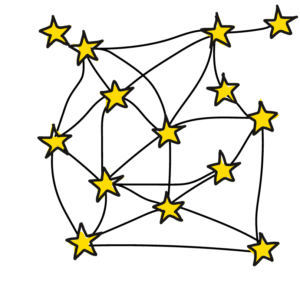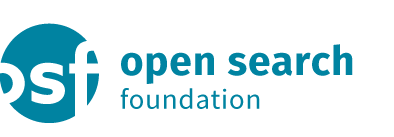First EU project on Open Web Search launches third-party call – An invitation to advance R&D for a new Internet Search in Europe
OpenWebSearch.EU – a consortium of 14 research partners – is open for third-party proposals to help building an open and independent Web-index (OWI) based on European values. The first call addresses business and research partners to submit their applications in two tracks from March 1st until April 28th, 2023.
“We look forward to joining forces with new partners to advance the idea of an Open Web Index, built in a cooperative spirit across Europe. This call is an excellent opportunity to widen the scope and enrich our R&D activities for the internet search of tomorrow,“ says Stefan Voigt, CEO of the Open Search Foundation (OSF).
In particular, the call is targeting SMEs or start-ups, individual innovators and researchers or research teams. Third-party candidates should drive research closely related to the topics addressed in the project. Moreover, they should aim at enriching the existing R&D activities as well as suggesting new ones, in line with the project goals and aims.
“Building such an Open Web Index faces not only technical challenges. There are also legal and societal issues, especially when we consider recent EU legislations such as the Digital Service Act or the Digital Market Act.”, explains Dr. Megi Sharikadze, Team lead Research Coordination and Support at Leibniz Supercomputing Centre (LRZ), one of the consortium partners.
Thus, the project consortium calls for contributions in two tracks:
Track 1 includes studies on legal or economic aspects of Open Search. This covers topics, such as legal constraints and requirements of crawling, storing, enriching or sharing web-data, but also the analysis of cost-benefit of an Open Web Index infrastructure across Europe or of market potential and economic impact.
Track 2 calls for technical concepts for legally compliant data acquisition and processing, considering also societal constraints. This includes contributions, such as vocabularies, metadata schemata or ontologies for expressing/defining legal constraints on web page usage or open datasets and machine learning models for analysing web pages.
In this first call of three, successful applications can request funding between 25,000 and 120,000 EUR for a period of up to 12 months. Members of the consortium as well as external experts will review the applications. Eligible are individuals as well as organizations residing in EU Member States or in Horizon Europe Associated Countries. The third-party projects will be funded under the OpenWebSearch.eu Community Program. All awardees will be essential part of ongoing and future R&D activities of Open Web Search Community.
Applications are accepted via email. Detailed information can be found at: https://openwebsearch.eu/call1
About the project
OpenWebSearch.EU is the first funding project by the EU to get tomorrow’s web search up and running. 14 renowned European research centers – including the Open Search Foundation (OSF) – kicked-off the project in September 2022. Over the next three years, the researchers will develop the core of a European Open Web Index (OWI). In addition, they will set the foundation for an open and extensible European Open Web Search and Analysis Infrastructure (OWSAI), based on Europe’s values, legislation and standards. The project receives funding of 8,5 million Euros from the European Union’s Horizon research and innovation programme under grant agreement no. 101070014.
About Horizon Europe
Horizon Europe is the EU’s key funding programme for research and innovation. It aims to build a knowledge- and innovation-based society and a competitive economy while contributing to sustainable development. The programme aims at implementing the European Commission’s guidelines.
OpenWebSearch.EU has kicked-off with a consortium meeting in Berlin. 46 representatives of the project partners got together in a hybrid meeting format in September to exchange ideas and make plans for the successful execution of the project.

Open Search Foundation e.V.
The Open Search Foundation e.V. is a European movement of people and organisations that work together to create the foundation for independent, free and self-determined access to information on the Internet. In cooperation with research institutions, computer centres and other partners, we’re committed to a searching the web in a way that benefits everyone. The promotion of research in the field of search engines, plus education and cooperation, form the pillars of our work.
